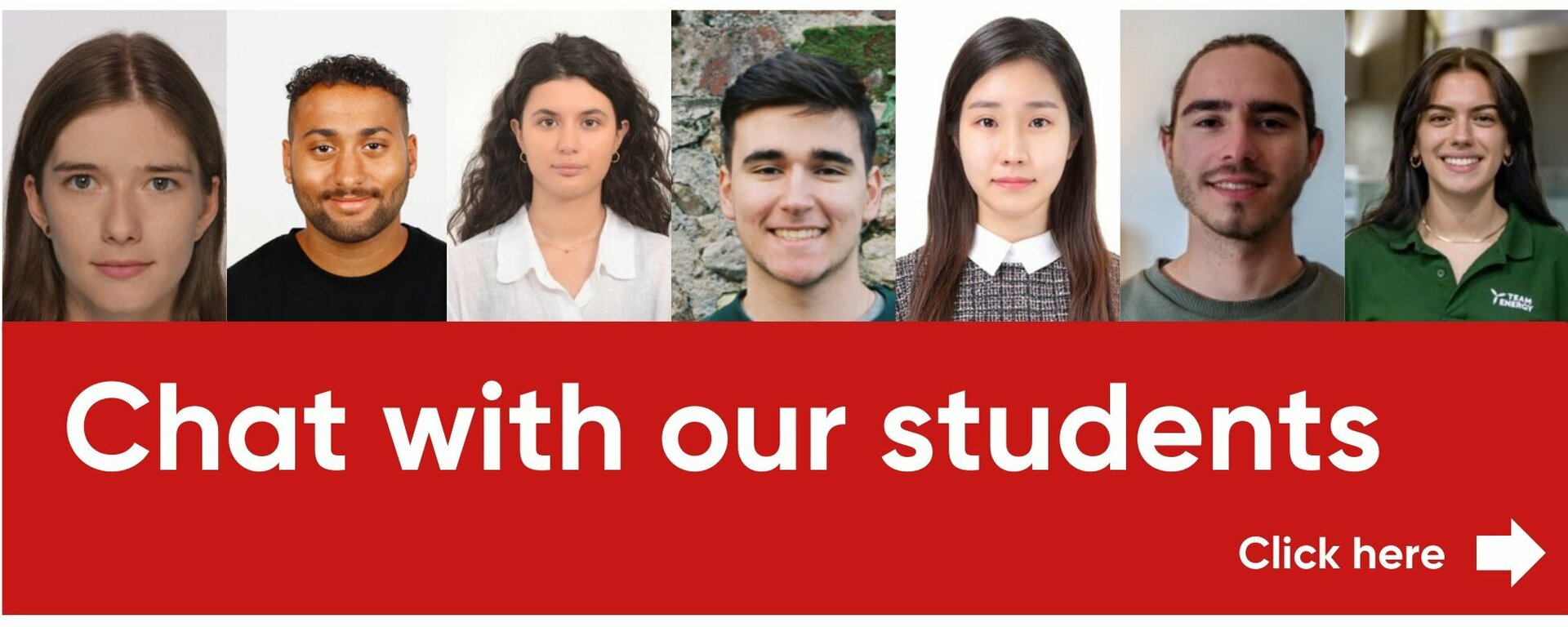Whether it is your cell phone, the security details for your bank card, the supply of products to shops, image processing in the medical field or a digital prototype for a car: none of these would exist without mathematics. You might not often even give it a thought, but mathematics is an essential part of our modern world. That is why there is also constant demand for versatile and widely deployable mathematicians, people who enjoy the challenge of solving problems and designing new products. Is being involved in creating the world of today and tomorrow something that appeals to you? Do you enjoy getting your teeth into a problem and do keep on searching for a solution until something has been solved? If so, our program in Applied Mathematics is the one for you.
What is Applied Mathematics?
Applied mathematics is a specific form of mathematics. It involves applying mathematical models in order to map out the mathematical core of a practical problem. With applied mathematics, you can solve problems that at first may not even appear to be mathematical in nature. This might be, for example, a practical problem that exists in industry or in (governmental) institutions.
As a mathematical problem sometimes requires the investigation and researching of mathematics at a more fundamental level, you may well have to undertake in-depth study as an applied mathematician. And as you often collaborate with specialists from other fields, you will also need the ability to look beyond your own specialization. That is what makes applied mathematics so fascinating.
Visit us
Do you want to stay informed about important information about studying at TU/e and upcoming events? Then create an account in MyStart@TU/e!
Mathematical model
Applied mathematicians produce a model of a problem and then use that model to carry out calculations in order to arrive at a solution. Solving a problem using a mathematical model involves 3 elements:
- Modeling: you produce a mathematical model for a practical problem. To do this, you need knowledge of mathematics and of the field from which the problem arises. It is therefore often the case that you as the mathematician work together with a specialist from the field in which the problem arises.
- Solving: if the mathematical problem is simple, the field specialist will solve the problem alone. If it is more complex, you as an applied mathematician work together with the field specialist.
- Retranslation of the solution to the original problem: you convert the solution of the mathematical problem according to the practical problem, so that specialists from the other field are able to use it.
Chat with our students
Combined bachelor program
Looking for an extra challenge? Or can't you choose between the bachelor's programs Applied Mathematics, Applied Physics and Computer Science and Engineering? Then you can choose to follow a combined program at the TU/e. The following combination is possible:
- Double bachelor program Applied Physics and Applied Mathematics or
- Double bachelor program Computer Science and Engineering and Apllied Mathematics
In a combined program, the most important subjects of Applied Mathematics and Computer Science and Engineering, or Applied Mathematics and Applied Physics, are retained. There is a considerable overlap between the programs. You can therefore obtain 2 diplomas with extra credits (about 25% heavier program).
ATTENTION
If you opt for a combined bachelor you have to apply for both studies in Studielink!
Study in figures
Show Transcript-
3.9
Student satisfaction on a scale 1 to 5
-
140
Number of first-year students
-
18-24
Contact hours in first year
-
59%
Advancement to second year
-
43%
Degree obtained within 4 years
-
95%
Follow-up education
Study association GEWIS
The study association represent the interests of the students at the department of Mathematics & Computer Science. It tries to let the students view their field of study from a different angle. It achieves this by means of excursions, lectures and symposia and by organizing a study trip. On the other hand, the association also organises sports tournaments, parties, a weekly drink, weekends and other forms of leisure activities to stimulate the relation between the members themselves.
Others visited
Not sure if this program is the perfect fit for you? Other prospective students also looked at:
Contact

This program is NVAO-accredited. In the Netherlands, the NVAO assesses the internal quality assurance of universities and colleges and the quality of their programs.
